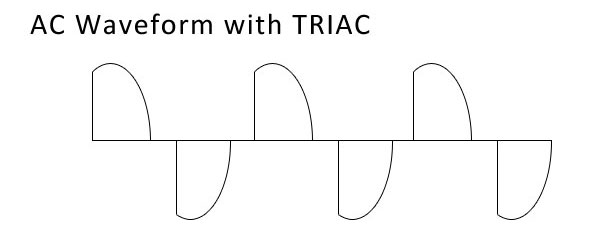No good place to start, so:
1. Do you know how to calculate your base cost for electricity? Ie. can you give a single answer for the question: What was your total cost per Kilowatt Hour last month. Total cost... not the delivery, not the equalizer, not the taxes, not the contract cost or the state taxes or any other part of the confusion that could make up you electricity bill. Answer should be like this:
$.124 /KWH.
2. When you leave your desktop computer on continuously... the cost per day?
3. If you have dimmer switches on your house lights, does it cost less when they are dimmed, or does the rheostat resistance offset the expected savings?
Same with fans and other variable devices.
3. Can you put a dollar amount on the cost of operating:
- a clock radio or alarm clock.
-A TV in standby mode, vs. off.
-your cable or satellite TV Box.
-the garage door opener
-the light/clock of your microwave or electric range.
4. The charger for your mobile device. Does it use electricity when it's plugged in, or just when it's charging?
5. Different question.... matching your electronic device with the correct charger:
If the original charger was 5V 1.0 Amp. Problem with using a 5V .5 amp or a 6V 1.0 amp?
Is damage likely if a 12V device is plugged in to a 9V charger, or vice versa?
6. Wired telephones operate on 98+ volts but nearly zero amps. Info correct?
7. Do all chargers convert AC to DC?
8. in an emergency, can regulr dry cells be used to power call phones by splicing wires?
9. Why can't a car jumpstart a totally dead battery?
10. Surge protector didn't protect my computer/modem/monitor/ external hard drive from nearby lightning strike. Why not?
11. What result from reversing wires in a wall socket?
12. I have an emergency generator. Am told I cannot hook up to power supply junction box. Why not?
13. How much of a short circuit is required to shut off the circuit breaker in my garage. Ie: dropping an electric razor in the bathroom sink? A hair dryer?
and in the same vein, why doesn't my circuit tester shut down the breaker?
13. Are electronics that are battery operated, negatively affected hen running on "low batteries"?
14. Why do the USB chargers in my computer operate at different amperages than some of my chargers.
15. Empirical observation ...I have bought chargers of all kinds for electronic devices... paid $.10 to $.25 each, and now have about 60 different chargers. No correlation that I can see between Volts, Amps and the plug in terminal... plus I don't understand why some chargers with the same output are very small, while others are five times the size.
Am sure I am showing some ignorance here, but am sincere in wanting to know more... No easy answers online that I can find.
Yeah... slow day...
1. Do you know how to calculate your base cost for electricity? Ie. can you give a single answer for the question: What was your total cost per Kilowatt Hour last month. Total cost... not the delivery, not the equalizer, not the taxes, not the contract cost or the state taxes or any other part of the confusion that could make up you electricity bill. Answer should be like this:
$.124 /KWH.
2. When you leave your desktop computer on continuously... the cost per day?
3. If you have dimmer switches on your house lights, does it cost less when they are dimmed, or does the rheostat resistance offset the expected savings?
Same with fans and other variable devices.
3. Can you put a dollar amount on the cost of operating:
- a clock radio or alarm clock.
-A TV in standby mode, vs. off.
-your cable or satellite TV Box.
-the garage door opener
-the light/clock of your microwave or electric range.
4. The charger for your mobile device. Does it use electricity when it's plugged in, or just when it's charging?
5. Different question.... matching your electronic device with the correct charger:
If the original charger was 5V 1.0 Amp. Problem with using a 5V .5 amp or a 6V 1.0 amp?
Is damage likely if a 12V device is plugged in to a 9V charger, or vice versa?
6. Wired telephones operate on 98+ volts but nearly zero amps. Info correct?
7. Do all chargers convert AC to DC?
8. in an emergency, can regulr dry cells be used to power call phones by splicing wires?
9. Why can't a car jumpstart a totally dead battery?
10. Surge protector didn't protect my computer/modem/monitor/ external hard drive from nearby lightning strike. Why not?
11. What result from reversing wires in a wall socket?
12. I have an emergency generator. Am told I cannot hook up to power supply junction box. Why not?
13. How much of a short circuit is required to shut off the circuit breaker in my garage. Ie: dropping an electric razor in the bathroom sink? A hair dryer?
and in the same vein, why doesn't my circuit tester shut down the breaker?
13. Are electronics that are battery operated, negatively affected hen running on "low batteries"?
14. Why do the USB chargers in my computer operate at different amperages than some of my chargers.
15. Empirical observation ...I have bought chargers of all kinds for electronic devices... paid $.10 to $.25 each, and now have about 60 different chargers. No correlation that I can see between Volts, Amps and the plug in terminal... plus I don't understand why some chargers with the same output are very small, while others are five times the size.
Am sure I am showing some ignorance here, but am sincere in wanting to know more... No easy answers online that I can find.
Yeah... slow day...
Last edited:



